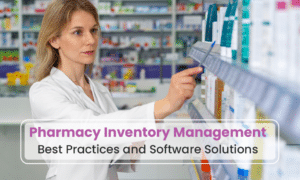
Motherhood, a moment of unimaginable happiness! It is a joy every woman has the right to experience. For many pregnant women, the moment of childbirth is often frightening due to the deaths caused by complications during pregnancy or childbirth.
Know About Maternal Mortality:
Maternal Mortality is defined as the deaths caused by complications during pregnancy or childbirth. Basically, there are four different groups defined in Maternal Mortality. They are Indirect, Direct, Coincidental Maternal Deaths and Late Maternal Deaths. Incidentally, each group has several categories, and they all have many causes of deaths assigned under each category with concerned groups. It is difficult to measure maternal mortality accurately unless a comprehensive registration of deaths and causes of death exists. Alternatively, maternal mortality can be estimated by the census, surveys or different models that have been used. One of the approaches can be Reproductive-Age Mortality Studies (RAMOS), which uses triangulation of different sources of data based on deaths of women of reproductive age, coupled with record review and/or verbal autopsy to identify maternal deaths. Along with that based on the data acquired through multiple sources RAMOS are considered the best way to estimate levels of maternal mortality. The household survey is subject to intervals and long period rates (Usually 10 years). The Global and regional state estimation of Maternal Mortality is considered every five years and developed using a regression model. The sources of data are from vital registration, health service records, household surveys and census.
Maternal Maternity Ratio (MMR) is calculated to understand the deaths caused during pregnancy or childbirth. And it is calculated by dividing the number of Maternal deaths caused in a given population during a particular period by the actual number of live births that occurred in that period. This will give details about the number of maternal deaths and the number of live births.
In India, for most of our history, pregnancy and childbirth were proved to be dangerous for both mother and child.
Key facts:
- India records a steep decline in the maternal mortality ratio in 2020.
- Maternal Mortality Ratio gives the number of women deaths caused due to pregnancy or it can be due to pregnancy termination within 42 days, per 100,000 live births.
- A regression model is used to estimate the data from the information obtained on the proportion of maternal deaths among non-AIDS deaths in women (aged 15–49) fertility, birth attendants, and GDP.
- India maternal mortality rate for 2017 was 145.00, a 3.33% decline from 2016.
- India maternal mortality rate for 2016 was 150.00, a 5.06% decline from 2015.
- India maternal mortality rate for 2015 was 158.00, a 4.82% decline from 2014.
- India maternal mortality rate for 2014 was 166.00, a 5.14% decline from 2013.
- All the related data on Maternal Mortality is made available by the Registrar General of India (RGI) through its Sample Registration System (SRS), which defines the Maternal Mortality Ratio (MMR).
- India had a target for MMR at 100 per 1,00,000 live births by 2020 as per NHP (National Health Policy) 2017.
- India has committed itself to achieve MMR at 70 per 1,00,000 live births by 2030, under the latest UN target for the Sustainable Development Goals (SDGs) for MMR.
I. What are the causes of Maternal Death?
- Hemorrhage is the leading cause of maternal mortality, which accounts for over one quarter (27%) of deaths.
- Maternal deaths are caused indirectly by pre-existing medical conditions aggravated by the pregnancy.
- Hypertensive disorders of pregnancy, especially eclampsia, as well as sepsis, embolism and Complications of unsafe abortion.
II. Is maternal death preventable?
The complications can occur without warning anytime during pregnancy and can cause death. Fortunately, most maternal deaths can be prevented if the skilled health personnel — doctors, nurses or midwives take care of the pregnant women by regularly supervising, hospitals have the proper equipment and supply of required medicines and advice to women on time to any emergency obstetric care, if complications are diagnosed. Every complication requires proper access to quality obstetric services, equipped with life-saving drugs, antibiotics, and the facility to provide blood transfusions if needed, to perform Cesarean sections or other surgical interventions as required and advised by skilled health personnel.
III. What is the Lifetime risk of maternal death?
It is defined as the probability that a 15-year-old girl died due to complications during pregnancy or childbirth over her lifetime. The Maternal Mortality Ratio and the Total Fertility Rate (It is the average number of births per woman during her reproductive years based on current age-specific fertility rates) both are considered. So, a woman faces the risk of death multiple times in a high fertility setting during pregnancy and her risk of death will be higher than during low-fertility settings. The lifetime risk of maternal death varies across countries and ranges from 1 in 5,400 in high-income countries to 1 in 45 in low-income countries.
IV. Key strategies applied by the Government of India to decline MMR
1. Janani Suraksha Yojana (JSY), a demand generation scheme was launched in April 2005. For bringing pregnant women to health facilities for ensuring safe delivery and emergency obstetric care.
2. Government of India launched Janani Shishu Suraksha Karyakaram (JSSK) on
1st June 2011. This initiative entitles the following facilities to all pregnant women.
- All pregnant women delivering in public health institutions to have free and no expense delivery, including caesarean section.
- · It includes free drugs, consumables, free diet during the stay, free diagnostics and free blood transfusion if required.
- · Free transport from home to institution, between facilities in case of a referral and drop back home. This entitlement is extended for all sick newborns accessing public health institutions for treatment till 30 days after birth.
- · In 2013, the scheme was expanded to cover complications during the ante-natal and
- post-natal periods and sick infants up to 1 year of age.
3. In June 2016, the Pradhan Mantri Surakshit Matritva Abhiyan (PMSMA) has been launched by the Ministry of Health & Family Welfare (MoHFW).
4. Rashtriya Kishor Swasthya Karyakram (RKSK), launched considering the magnitude of various health problems and risk factors among adolescents. which has an impact on maternal and child health outcomes results in the occurrence of non-communicable diseases in future.
V. The role of the private sector in Maternal Healthcare
According to the World Health Organization (WHO), roughly one woman dies every two minutes from preventable pregnancy-related complications and childbirth every day. The Sustainable Development Goals (SDG) have set the target of improving maternal and reproductive health outcomes to ensure universal access to sexual and reproductive health care services, includes family planning, information, and education. It also set a target to reduce global MMR to fewer than 70 deaths per 100,000 live births by 2030. To achieve these targets, will require cooperation, ongoing investment from many different stakeholders, and innovative partnerships.
The private sector has played a critical role in women’s maternal healthcare. From developing new innovative technologies, drugs and running private clinics with innovative healthcare systems and services. Hence creating systems, partnerships and opportunities to utilize the private sector benefits becomes imperative if SDG targets are to be achieved. The critical issues addressed by private healthcare companies are:
1. Issues in the supply chain (commodity, financial flow) and structural inefficiencies including outdated technology, data storage systems such as paper-based records create difficulty in transferring and sharing data.
2. Huge human resource gaps among government health workers. They are overburdened with the responsibilities of managing local supply chain logistics along with providing healthcare services.
3. Financial Systems are problematic and health facilities are required to pay upfront for commodities. This can be addressed by private healthcare sectors.
Hence by shifting supply chain management to third-party logisticians, stakeholders are in a better position to successfully address all the above-mentioned issues.
4. Improving access to and quality of healthcare services.
Private companies can improve access to healthcare services by creating innovative products and services appropriately.
5.Digitization is a huge opportunity for private healthcare sector contributions which can particularly support fast data access and communication where access is limited particularly in rural areas.
Leveraging private healthcare sector expertise to improve the healthcare system to address Maternal Mortality in India is imperative and collaboration can help to solve critical health care gaps. This will give provision to financial resources with the capacity to deliver quality products and services, expertise and innovation leading to co-designed solutions with governments.
Maternal healthcare becomes the frontier for private healthcare sector engagement. Many private healthcare providers have been involved in filling the gaps in the healthcare systems through innovative technologies.
Ezovion, an intelligent Healthcare Service provider has built a strong healthcare platform with healthcare industry experts, doctors that will serve well now and the future practice. They have a plug and play solution designed to streamline clinical, compliance, financial and operational workflows for better outcomes. They provide services such as:
· Patients info, Lab Reports, Prescriptions are available instantly hospital-wide.
· Ezovion includes in-depth IT solution for IVF, Dental, Vision Care, Radiology, hospital facility management
· Ezovion seamlessly migrate your existing HMS to Ezovion. Exit from Ezovion is also made easy for you!
· Integrated Ezovion safeguards patient data privacy and security, powered with Artificial Intelligence (AI) & Machine Learning (ML).
· Ezovion.ai alerts prescription scanning to alert drug poisoning/overdose. Seasonal diseases, low or expired inventory.
· Ezovion has Proactive monitoring and a built-in tech support module to run your HMS better.
· On-premise
On-premises Ezovion is installed and operated from your hospital or network of hospitals and OPDs in-house computer infrastructure.
· Ezovion Cloud
Ezovion Cloud offers end-to-end HMS, Dental, Lab and Pharmacy Solutions on a highly secured cloud platform. Access your system with your laptop, mobile devices and desktop wherever you have internet. Less initial setup cost, Highly secured, Manage your patient care on the go, Less maintenance, Scale up or down based on your demand.
Improvements in healthcare, nutrition, and hygiene have reduced maternal deaths considerably. But women are still dying from preventable pregnancy-related causes.
Ezovion healthcare services provide remote health care diagnostics and support. It provides an End-to-end integrated Ezovion Inpatient Management Software, that transforms complicated IP processes with Electronic Health Record (EHR) templates. It also supports peer-to-peer image sharing with doctors or any other trained technicians in hospital settings, enabling them to help patients timely and provide remote health care diagnostics and support. The kind of support given to doctors are listed below:
· Get information and alerts instantly from anywhere and anytime
· Manage your appointments better and have a better work/life balance
· Interactive Dashboard to manage patient care and hospital
· Manage government regulations and compliance
· Better communication and collaboration
· Paperless reporting
These benefits support patients with easy appointment and scheduling, better coordination with Doctors and staff and access patient’s information online instantly and provide required care immediately. Like Ezovion there are many such private healthcare service providers, unique in their services and innovative technologies. They can all collaboratively work to improve the healthcare system in India.
To address Maternal Mortality and the challenges faced by the government healthcare system, a collaboration between the private sector and the government healthcare system is the need of the hour, especially during the Covid-19 pandemic situation. It can collaboratively work towards empowering community health care workers with remote support, provide required video training-enabled coaching & diagnostics and other digital solutions, which can bring a point of access and timely care to pregnant women.
If India is targeting to achieve MMR at 70 per 1,00,000 live births by 2030, collaboration is the key and it can elevate healthcare systems in India through intelligent Healthcare Service Experiences!
VI.References:
2. https://data.unicef.org/topic/maternal-health/maternal-mortality/
https://main.mohfw.gov.in/sites/default/files/03Chapter.pdf
3.https://www.linkedin.com/pulse/maternal-health-care-frontier-private-healthcare-service-m-p-









